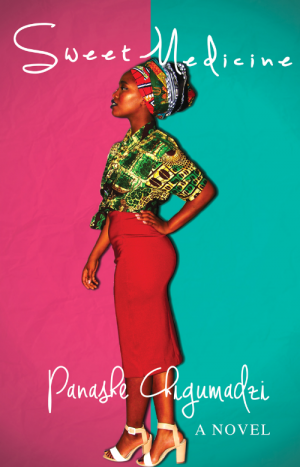 There seems to be no end to all the good fiction being written about Zimbabwe—Bulawayo’s We Need New Names
There seems to be no end to all the good fiction being written about Zimbabwe—Bulawayo’s We Need New Names, Gappah’s The Book of Memory
, Huchu’s The Hairdresser of Harare
and recently The Maestro, The Magistrate and The Mathematician
.
Sweet Medicine, Panashe Chigumadzi’s debut novel is the latest in a growing body of fictional works that represent life in one of Africa’s most influential countries. The novel was published last year by South African press Jacana. It follows the life of a young Harare woman in search of the good things of life—financial independence and romance.
The 24 year old author was born in Zimbabwe but grew up in South Africa. Chigumadzi has always been interested in questions about blackness and femininity. She has built a life of activism around the intersection of race, women, and storytelling. Time and again in her writing, she has interrogated the kinds of stories told about black women’s lives. Vanguard Magazine, a publication that she founded is dedicated to exploring what it means to be black and a woman in post-Apartheid South Africa.
Her novel is essentially an attempt to expand her intellectual exploration of big social and political questions into the realm of fiction. Sweet Medicine tells the story of Tsitsi, a young woman living in Harare. Raised in a catholic home, religion and spirituality plays a big role in her life. She grows up with a staunch catholic mother who impressed upon her the unbreakable link between hard work, prayer, formal education and success. For her mother, a happy future was solidly guaranteed by strong Christian ethics and hard work.
All through her years in mission school and then in University, Tsitsi lives by these cardinal rules on how to attain a happy and successful future. She does everything right and lives her life, for the most part, by the book. As a result, when she graduates from university, Tsitsi expects a happy ending. But life is messy, and after all the hard world and good-girl life style, Tsitsi finds herself irking out a living as a clerk. The question then becomes, should she perhaps consider explore the wild side and compromise her Christian values to find financial success?
Sweet Medicine is significant as a novel attempting to tell an important story about the lives of African women. That’s why you’ll love reading it. You’ve come across women like Tsitsi. You may even have had similar experiences, finding that you’ve been living the life/lie that parents, pastor, and teachers want you to live only to end up with broken dreams. Chigumadzi is asking us to pay attention to the unrealistic and usually sexist expectations and cultural values to which we subject women. Society sets ideals that are virtually unrealizable given the harsh realities of economically and socially stifling conditions.
But the Sweet Medicine not, for all this, didactic or preachy. In fact, Chigumadzi’s aim is to critique a prescriptive culture that holds women’s lives under strict rules of morality and tells them what and how to dream. When you get down to it, Sweet Medicine is a lovely read, with thrilling dramatic moments and a romance plot that will make your heart flutter.
At 180 pages, it’s a petite novel— excellent for a quick weekend read.
Follow this link to read an excerpt of the novel: Excerpt from Panashe Chigumadzi’s Debut Novel
Here is how to order: amazon.com
************
Author Info:
Website: panashechigumadzi.com
Twitter: @panashechig










COMMENTS -
Reader Interactions